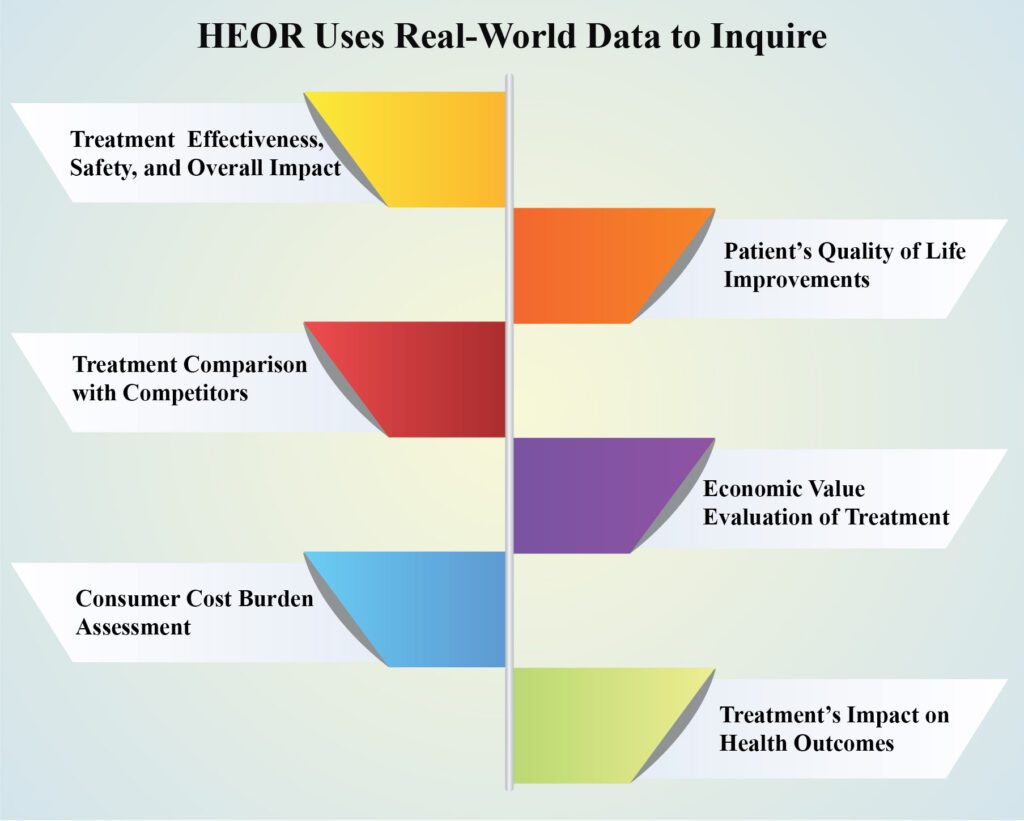HEOR: Enhancing Patient Care Through Economic and Outcomes Insights
In the current healthcare landscape, there is an increasing demand to achieve better patient outcomes while controlling costs. The decision-making process for healthcare providers has become more complex as they navigate a wide range of treatment options and consider both economic and clinical implications. To address these challenges, health economics and outcomes research (HEOR) has emerged as a valuable tool in guiding clinical decision-making and improving patient care.
Understanding HEOR:
HEOR is a field that bridges the gap between clinical trials and the real-world effectiveness of medical interventions. While clinical trials provide valuable data, they often fail to capture the true impact of treatments in everyday settings. HEOR generates economic and outcomes data that support more informed healthcare decisions.
HEOR plays a crucial role in assessing the value of medical treatments by combining:
- Health economics, which quantifies the monetary value associated with medical interventions.
- Outcomes research, which evaluates the effects of interventions on patients’ health.
- HEOR combines these fields and generates comprehensive data on both economic aspects and outcomes related to medical interventions, empowering healthcare providers to make informed decisions regarding patient care.
HEOR Expands Perspectives Beyond Clinical Trials:
HEOR accounts for a broader range of variables than clinical trials, including not only clinical outcomes but also financial impact, patient-reported quality of life, and overall satisfaction. These additional measures provide a more holistic understanding of a treatment’s value.
Healthcare stakeholders increasingly rely on HEOR data to:
- Support informed healthcare-related investment decisions
- Shape the behaviors of key stakeholders
- Assess the relative value of various outcomes
- Measure and evaluate the quality of the healthcare system
HEOR in Patient-Centered Outcomes:
One of HEOR’s strengths is its ability to capture patient-centered outcomes. By incorporating patient lifestyles, preferences, and experiences, HEOR highlights the importance of individualized care and treatment compliance. It also helps identify disparities among different populations, supporting efforts to improve access and equity in healthcare delivery.
HEOR in Evidence-Based Decision-Making:
HEOR data is crucial in evidence-based decision-making. Healthcare stakeholders, including providers, payers, and policymakers, rely on HEOR to allocate resources efficiently and guide clinical actions. It aids providers in selecting optimal treatments, identifying gaps, and expanding label claims with regulatory agencies. Payers rely on HEOR to assess treatment efficacy, make reimbursement decisions, and evaluate managed care plans.
HEOR in Biopharmaceutical and Device Development:
The biopharmaceutical and medical device industries use HEOR to evaluate the value of innovations. HEOR provides a structured approach to assess both the economic and clinical impact of new treatments, supporting smarter development and launch strategies.
HEOR for Payers:
Payers play a key role in applying HEOR data to evaluate treatment effectiveness across populations. HEOR informs decisions about patient access, drug coverage, therapy approvals, and reimbursement strategies—balancing cost-effectiveness with improved outcomes.
Conclusion:
HEOR has transformed healthcare decision-making by offering insights into both the clinical and economic value of interventions. Its emphasis on real-world, patient-centered data enables more informed, cost-effective, and outcome-driven care. As healthcare continues to evolve, HEOR will remain essential in optimizing clinical practice and resource allocation.
WorkSure®, a leading healthcare solutions provider, offers innovative tools to support HEOR initiatives through real-world data. With a focus on generating actionable evidence, WorkSure® empowers stakeholders to make informed, data-driven decisions that improve care and control costs. By extracting and analyzing unstructured data, WorkSure® provides critical insights for treatment planning, medical research, and quality monitoring. Its advanced analytics—powered by natural language processing and machine learning—enable secure de-identification of patient data from electronic health records and registries, advancing HEOR, population health, and epidemiology.
